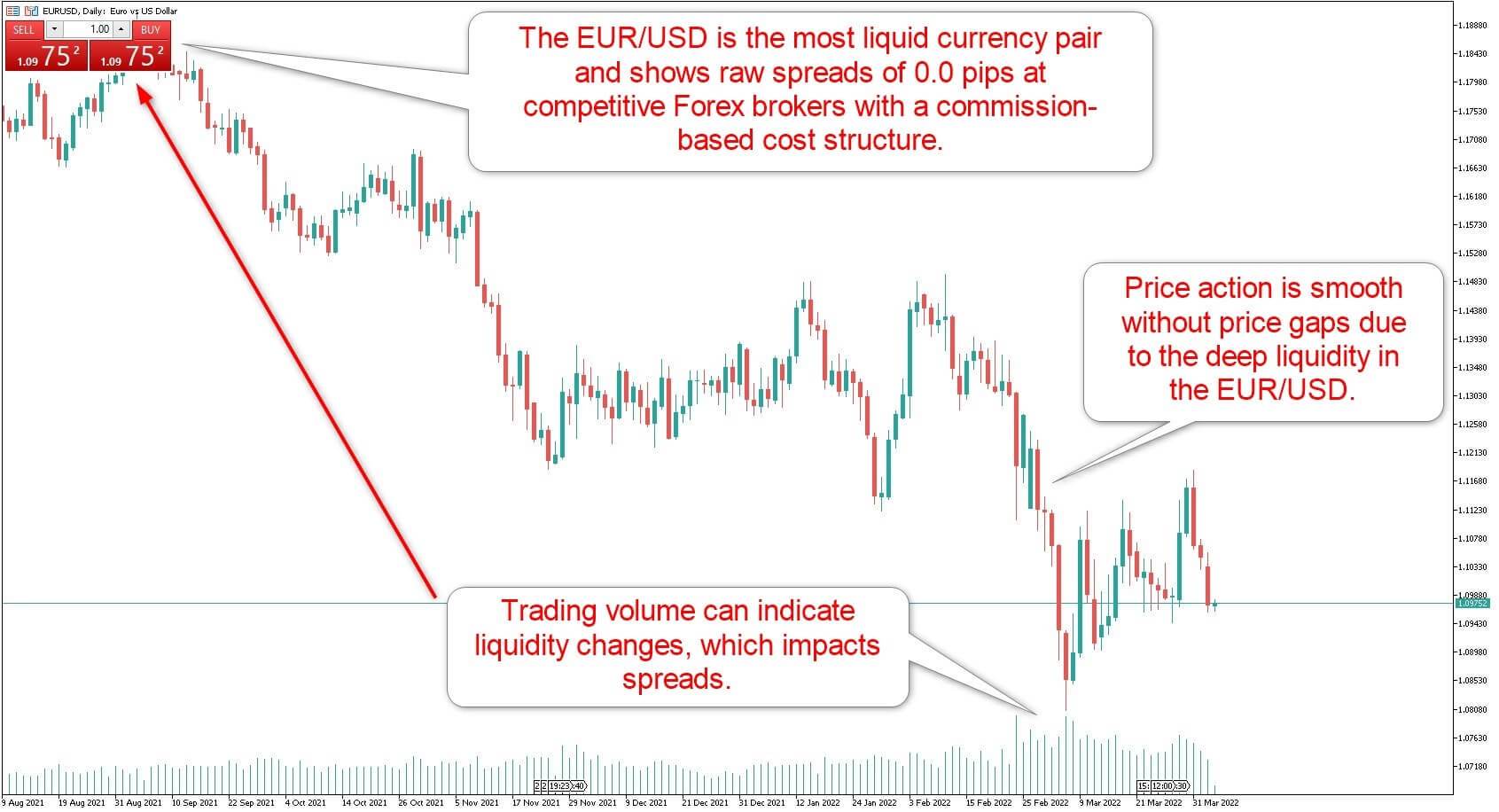
The supply and demanded of the underlying assets determines the futures contract's price. This is different from the pricing process for stocks or commodities, which is based on rational pricing. Futures prices are based on current supply and demand. However, it is possible that large quantities of the delivered asset could be withheld from the market participants. This practice is known as "cornering market". Although the market clearing price of a futures contract may still reflect a balance between supply and demand, the price that reflects this balance is different from the futures price. In illiquid and shallow markets, the relationship between market clearing price and expected future price can break down.
Profits if prices drop
Investors who have a long position in futures can benefit from falling prices. They can then sell the contract at a higher cost and then purchase it back at a cheaper price. Hedgers and speculators can use this strategy for a variety reasons.

Margin requirements
The margin requirements are important to know if you want to buy futures contract. The minimum margin required to purchase a futures contract is generally 10 percent of the contract's total value. However some exchanges may require higher margins. In addition, margin requirements for options and warrants can be higher.
Futures trading
Trading in futures contracts is a lucrative way to earn money. There are two parties involved in this process, a buyer or seller. A seller and buyer agree to pay a fixed price for a particular asset. The buyer prebuys the asset, and the seller is expected to make payment within the agreed time.
Futures contracts at a cost
The services used can affect the cost of futures contract prices. The trader should choose the right service for him or her. The trader should also decide how much broker fees he or her will need to pay. Broker fees vary depending on the type and investment.
Futures trading exchanges
You can invest in commodity futures in many different ways. Participation in a commodity index fund is possible, as well as investing in a fund that mimics the market. Index funds have become increasingly popular over the past decade, and they are used by institutional investors, such as pension funds and university endowments. This fund invests directly in a commodity price index. It also provides inflation protection.

Expiration date of a futures contract
Futures trading is all about the expiration of futures contracts. This is the most important element of any contract. This date determines when the contract is closed for trading and is included in the contract's specifications. The specifications are the official documents of the trade organizer. They contain all of the parameters and trading rules for the futures contracts. The normal expiration date for future contracts is the third Thursday in the month. However, certain contracts may have an earlier expiration date or later.
FAQ
What is a Reit?
A real-estate investment trust (REIT), a company that owns income-producing assets such as shopping centers, office buildings and hotels, industrial parks, and other buildings is called a REIT. These are publicly traded companies that pay dividends instead of corporate taxes to shareholders.
They are very similar to corporations, except they own property and not produce goods.
What are the benefits of investing in a mutual fund?
-
Low cost - purchasing shares directly from the company is expensive. It is cheaper to buy shares via a mutual fund.
-
Diversification: Most mutual funds have a wide range of securities. If one type of security drops in value, others will rise.
-
Professional management - professional mangers ensure that the fund only holds securities that are compatible with its objectives.
-
Liquidity: Mutual funds allow you to have instant access cash. You can withdraw your money whenever you want.
-
Tax efficiency – mutual funds are tax efficient. This means that you don't have capital gains or losses to worry about until you sell shares.
-
For buying or selling shares, there are no transaction costs and there are not any commissions.
-
Mutual funds are easy to use. You will need a bank accounts and some cash.
-
Flexibility – You can make changes to your holdings whenever you like without paying any additional fees.
-
Access to information- You can find out all about the fund and what it is doing.
-
Investment advice – you can ask questions to the fund manager and get their answers.
-
Security - know what kind of security your holdings are.
-
You can take control of the fund's investment decisions.
-
Portfolio tracking: You can track your portfolio's performance over time.
-
You can withdraw your money easily from the fund.
There are some disadvantages to investing in mutual funds
-
Limited investment options - Not all possible investment opportunities are available in a mutual fund.
-
High expense ratio. The expenses associated with owning mutual fund shares include brokerage fees, administrative costs, and operating charges. These expenses can impact your return.
-
Lack of liquidity-Many mutual funds refuse to accept deposits. They can only be bought with cash. This limits your investment options.
-
Poor customer service - There is no single point where customers can complain about mutual funds. Instead, you should deal with brokers and administrators, as well as the salespeople.
-
High risk - You could lose everything if the fund fails.
What's the role of the Securities and Exchange Commission (SEC)?
SEC regulates the securities exchanges and broker-dealers as well as investment companies involved in the distribution securities. It enforces federal securities laws.
What are some advantages of owning stocks?
Stocks can be more volatile than bonds. The value of shares that are bankrupted will plummet dramatically.
If a company grows, the share price will go up.
For capital raising, companies will often issue new shares. This allows investors the opportunity to purchase more shares.
Companies borrow money using debt finance. This allows them to borrow money cheaply, which allows them more growth.
Good products are more popular than bad ones. The stock's price will rise as more people demand it.
As long as the company continues producing products that people love, the stock price should not fall.
Statistics
- Even if you find talent for trading stocks, allocating more than 10% of your portfolio to an individual stock can expose your savings to too much volatility. (nerdwallet.com)
- "If all of your money's in one stock, you could potentially lose 50% of it overnight," Moore says. (nerdwallet.com)
- US resident who opens a new IBKR Pro individual or joint account receives a 0.25% rate reduction on margin loans. (nerdwallet.com)
- Individuals with very limited financial experience are either terrified by horror stories of average investors losing 50% of their portfolio value or are beguiled by "hot tips" that bear the promise of huge rewards but seldom pay off. (investopedia.com)
External Links
How To
How to Invest Online in Stock Market
One way to make money is by investing in stocks. There are many ways you can invest in stock markets, including mutual funds and exchange-traded fonds (ETFs), as well as hedge funds. Your risk tolerance, financial goals and knowledge of the markets will determine which investment strategy is best.
First, you need to understand how the stock exchange works in order to succeed. This includes understanding the different types of investments available, the risks associated with them, and the potential rewards. Once you've decided what you want out your investment portfolio, you can begin looking at which type would be most effective for you.
There are three main categories of investments: equity, fixed income, and alternatives. Equity refers a company's ownership shares. Fixed income is debt instruments like bonds or treasury bills. Alternatives include commodities like currencies, real-estate, private equity, venture capital, and commodities. Each option has its pros and cons so you can decide which one suits you best.
There are two main strategies that you can use once you have decided what type of investment you want. The first strategy is "buy and hold," where you purchase some security but you don't have to sell it until you are either retired or dead. Diversification refers to buying multiple securities from different categories. If you buy 10% each of Apple, Microsoft and General Motors, then you can diversify into three different industries. Multiple investments give you more exposure in different areas of the economy. You are able to shield yourself from losses in one sector by continuing to own an investment in another.
Risk management is another key aspect when selecting an investment. Risk management will allow you to manage volatility in the portfolio. A low-risk fund could be a good option if you are willing to accept a 1% chance. You could, however, choose a higher risk fund if you are willing to take on a 5% chance.
Learning how to manage your money is the final step towards becoming a successful investor. Managing your money means having a plan for where you want to go financially in the future. A plan should address your short-term and medium-term goals. It also needs to include retirement planning. That plan must be followed! Keep your eyes on the big picture and don't let the market fluctuations keep you from sticking to it. Stick to your plan and watch your wealth grow.